Do you know when it’s time for you to pause, reflect and re-set? What signs do you watch for? And HOW do you pause, reflect and re-set?
Pushing the pause button on ‘doing’
After months of squishing extra work into my life, I was really looking forward to having ‘downtime’ over the Christmas / New Year break. I could sense the momentum I’d been enjoying since Easter was gradually dragging to a halt and ‘all the things’ of life felt like they were piling on top of me. Anyone else felt that way?
It can be tricky to rein it all in, and I certainly felt that too when I finished up work for the year. Still racing, we packed up for a road trip to visit family and managed to fill every single moment of our travels with activity and socialising. Then whoosh we were back home again unpacking, cleaning up and repacking for another family visit in a different direction. We also went bushwalking, mountain bike riding and caught up with jobs around home, sadly neglected in the recent fullness of life, yet that’s what holidays are for, right? Lots of ‘doing’ to catch up on ‘all the things’ that have been getting on top of you during the year? Yes? No?
I don’t know what answer is right for you, but I do know that the important thing is to take a moment now and then to settle in to your ‘being’ self. To pause, reflect and then re-set if you need to.
Time to reflect, re-set and simply ‘be’
After a week and a half of ‘doing’, I stepped into my ‘being’ self and I’m now celebrating and protecting these moments of pause that I’ve also been yearning for.
When you pause long enough, you feel your heart beating in your chest. You hear the voices in your head and you sense what your gut is saying. You listen in to what it is you need right now. You learn to know the difference between between your inner knowing and the external voices and pressures that shape so much of your life. You reflect and have the opportunity to re-set what’s not working so well.
Reflective questions to ask yourself
When you take a moment to pause and reflect, you can ask yourself:
- What in my life is working well for me?
- What is not working so well?
- What does my body, mind and spirit need?
- What can I do differently so that I nurture myself whilst also nurturing others and the world around me?
Re-set any time you need it
These reflections always highlight any areas that will benefit from my compassion and attention. As someone who rejects “new year, new you” promises, I encourage you to take a moment of pause to reflect and re-set any time. Do it for yourself. No reason needed. Just because.
E-BOOK: Your Personal Day of Retreat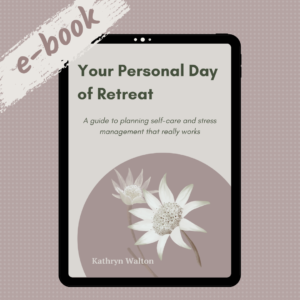
Would you like a clear, structured and detailed guide to help you create a whole day of retreat for yourself? A day to push the pause button, reflect and re-set your balance in life?
“Your Personal Day of Retreat: A guide to planning self-care and stress management that really works” e-book is available now for immediate download as a PDF. At just US$12 you’ll have a guide for life. Your life.

Discovering mountain biking as life’s ultimate parallel universe in her middle age, Kathryn Walton shares information and reflections that inform, inspire and empower women to a healthy and active lifestyle.
Connect with me!
I always love to hear from you. Join my Grounded Inspiration newsletter or send me a message.
We’re sharing more ideas over on our private Outdoors is my Therapy Facebook Group so I’d love to connect with you there too!



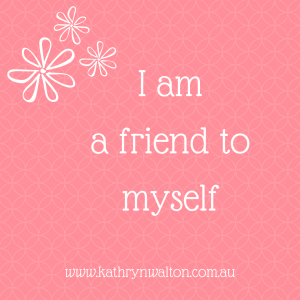 The way we think is closely related to the way we have been socialised when were younger, with the added layer of personality thrown in. So it’s no surprise that women often share certain beliefs, assumptions and thinking patterns related to self-care – it’s selfish to do something for myself; people will think I’m selfish / not coping; time and money should be spent on something or someone else who needs it more than me; I don’t have enough time or energy; I should just soldier on like everyone else does …..
The way we think is closely related to the way we have been socialised when were younger, with the added layer of personality thrown in. So it’s no surprise that women often share certain beliefs, assumptions and thinking patterns related to self-care – it’s selfish to do something for myself; people will think I’m selfish / not coping; time and money should be spent on something or someone else who needs it more than me; I don’t have enough time or energy; I should just soldier on like everyone else does …..




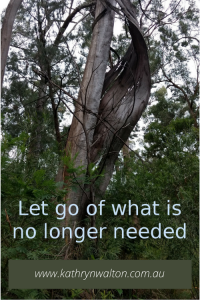

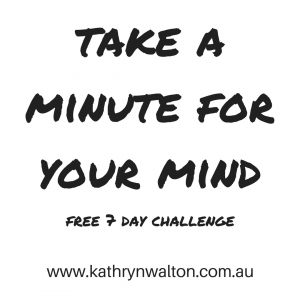
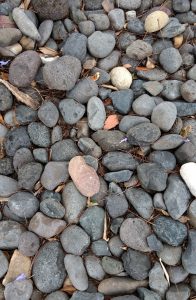 So first of all, make sure you GET THE BIG ROCKS IN YOUR LIFE FIRST. They are your priorities so take steps to make sure you allow plenty of time and energy for them. Next put in your medium-sized rocks. Your small rocks go in after that and will be able to settle into the spaces between the bigger rocks. You can be more flexible with how they fit into your life. Next comes the sand. These things will be able to flow into the spaces that you have left. If there isn’t time and energy for them right now, that doesn’t matter. When things settle, they’ll have a place in your bucket once again.
So first of all, make sure you GET THE BIG ROCKS IN YOUR LIFE FIRST. They are your priorities so take steps to make sure you allow plenty of time and energy for them. Next put in your medium-sized rocks. Your small rocks go in after that and will be able to settle into the spaces between the bigger rocks. You can be more flexible with how they fit into your life. Next comes the sand. These things will be able to flow into the spaces that you have left. If there isn’t time and energy for them right now, that doesn’t matter. When things settle, they’ll have a place in your bucket once again. 

 Kathryn Walton shares information and reflections in Daisy Spoke that connect, inspire and self-empower women to make healthy choices for themselves.
Kathryn Walton shares information and reflections in Daisy Spoke that connect, inspire and self-empower women to make healthy choices for themselves.